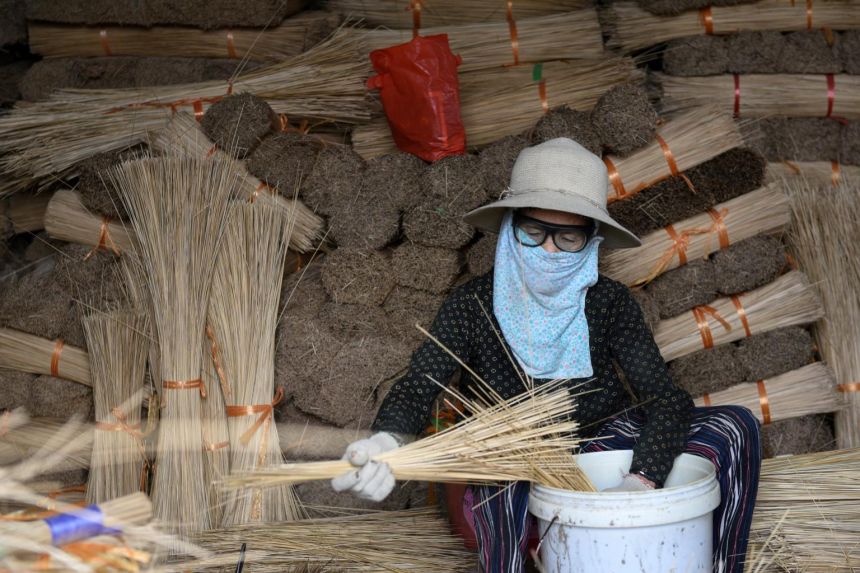Do Thi Oanh, 37, a resident of Quang Phu Cau, recalls from childhood being involved in making incense sticks that are burned in Vietnam during prayers to ancestors or in festivals as well as in cultural and religious rituals around the world.
Now, she is worried about the future of the trade after India imposed curbs on imports and with the added impact of the pandemic and a new wave of infections since January after the coronavirus had been largely been contained for months.
“We have been producing incense sticks for many generations in this village, but I’m afraid many of us will have to shut down our businesses due to weaker demand,” Oanh said.
Her family business used to export around 15 containers of incense sticks to India a month, but this had fallen to five to six containers after import curbs, she said.
|
|
| A woman prepares sticks for incense-dying. Photo: Reuters |
“The coronavirus has also hurt domestic incense consumption a little bit, but demand has picked up ahead of the Lunar New Year,” Oanh said, speaking just before the holidays, known as “Tet” in Vietnam.
Once a cottage industry, most producers in the village now use machines to cut the bamboo used for incense sticks, with the industry providing an incomes for nearly 3,000 households.
The fingers of workers are often stained red by the dye used on the incense sticks.
In 2013, Oanh and her husband opened a workshop to make incense sticks and later borrowed about $70,000 from the bank to grow their business.
But when the pandemic started she had to halve her workforce to 10 and cut their hours, before resuming normal operations when orders for the Lunar New Year emerged.
“In the business, there will be up and down times…I can’t do anything but try to figure any way around it”, said Oanh.
($1 = VND23,010)





